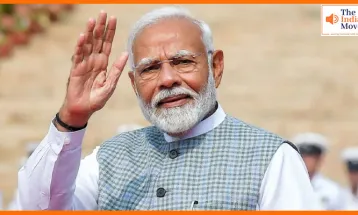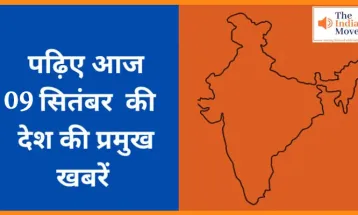
Important Battles in Indian History and the Famous Battles of India You Should Know
-
 The India
The India
- September 9, 2025
The Battles in Indian History tell powerful stories of bravery, smart strategies, cultural changes, and the struggles of colonial rule. These Famous Battles of India shaped the subcontinent’s cultural and political destiny. This blog dives deep into the wars in India, indian battle history, important wars in Indian history, and the legendary famous battles in India you should know.
Why Understanding Battles in Indian History Matters
From the wars of India that marked the rise and fall of empires to the great battles in history that redefined territories, every conflict shapes India’s legacy. Whether it’s the war of India in ancient times or the critical clashes during colonial rule and independence, knowing these important wars in Indian history helps us understand the evolution of governance, culture, and identity.
We’ll explore the following
- Important Battles in Ancient India History
- Important Battles in Medieval Indian History
- List of Important Battles in Modern Indian History
Important Battles in Ancient India History
The battles in ancient Indian history were crucial in shaping the early foundations of Indian kingdoms, empires, and philosophies. These confrontations were not merely territorial disputes but also wars that defined cultural identities, dynastic power, and religious transformations.
One of the earliest wars of India mentioned in texts is the Battle of Kurukshetra, described in the Mahabharata. Though mythological, it reflects the ideals of dharma (righteousness) and karma, making it central to indian battle history. Later, real historical wars such as the Battle of Hydaspes (326 BCE) between Alexander the Great and King Porus highlighted India’s resistance to foreign invaders. Despite Alexander’s victory, Porus’s bravery was celebrated and respected, showing the resilience of Indian rulers in ancient times.
The Kalinga War (261 BCE) is one of the important wars in Indian history, fought between Emperor Ashoka of the Mauryan Empire and the Kingdom of Kalinga. Though Ashoka won, the massive loss of life—over 100,000 soldiers—deeply impacted him, leading to his transformation into a promoter of Buddhism and non-violence. This war is remembered as one of the most significant turning points in Indian civilization.
Thus, famous Indian battles of ancient India not only determined political boundaries but also influenced religion, governance, and moral philosophy, leaving a long-lasting legacy.
These ancient Indian battles history set the foundations for powerful empires and strategic doctrines.
|
Battle Name |
Year (approx.) |
Between |
Outcome / Significance |
|
Battle of the Ten Kings |
14th century BCE |
Bharatas (King Sudas) vs. ten-tribe coalition |
Victory for Sudas; consolidated Bharata dominance and led to the rise of the Kuru kingdom. |
|
Battle of Hydaspes |
326 BCE |
Alexander the Great vs. King Porus |
Alexander won but respected Porus, reinstating him as king—showcasing early wars in India with diplomacy. |
|
Seleucid–Mauryan War |
305–303 BCE |
Chandragupta Maurya vs. Seleucus I |
Chandragupta secured northwestern territories and a dynastic alliance. |
|
Kalinga War |
261 BCE |
Mauryan Empire (Ashoka) vs. Kalinga |
Mauryan victory with massive casualties; Ashoka embraced Buddhism and peace as a result. |
|
Conquest of the Nanda Empire |
321–320 BCE |
Chandragupta Maurya vs. Dhana Nanda |
Overthrow of the Nandas; foundation of the Mauryan Empire. |
|
Battle of Pataliputra |
~185 BCE |
Pushyamitra Shunga vs. Brihadratha |
Fall of Mauryan rule; emergence of the Shunga dynasty. |
|
Battle of the Ten Kings (recount) |
14th century BCE |
Bharatas vs. coalition |
Consolidated Bharata power in early Vedic history. |
|
Mahabharata’s Battle of Kurukshetra |
Mythological (c. 3000–1000 BCE) |
Pandavas vs. Kauravas |
Mythico-historical; symbolizes ethics and dharma—central to Indian philosophy. |
These famous battles in India from ancient times highlight the conquests, mythological ethos, and the shifting paradigms of power and ideals.
Also Read: Top 10 National Awards of India: Complete List of Awards in India
Important Battles in Medieval Indian History
The medieval battles in Indian history were largely fought for power, expansion, and control between Rajput kings, Delhi Sultans, Mughal emperors, and regional dynasties. This period saw some of the famous battles in India that completely reshaped the subcontinent’s political structure.
One of the earliest defining wars of this period was the Second Battle of Tarain (1192 CE), fought between Prithviraj Chauhan and Muhammad Ghori. This war marked the decline of Rajput dominance and the rise of the Sultans of Delhi, leading to the establishment of the Delhi Sultanate. The victory of Ghori introduced centuries of Islamic rule in North India, making it a turning point in india medieval history.
The First Battle of Panipat (1526 CE) is another iconic example. It was fought between Babur and Ibrahim Lodi, where Babur’s use of artillery revolutionized Indian warfare. This marked the beginning of the Mughal Empire, a dynasty that would dominate Indian politics, culture, and architecture for over 300 years.
Equally important is the Battle of Talikota (1565 CE), which ended the supremacy of the Vijayanagara Empire in South India after a coalition of Deccan Sultanates defeated it. This war highlighted the shifting balance of power in medieval southern India.
The Battle of Haldighati (1576 CE) between Maharana Pratap and Akbar’s forces is remembered as one of the famous battles of India, symbolizing bravery and resistance. Although the Mughals won, Maharana Pratap continued to fight through guerrilla warfare, becoming a legendary figure in indian battle history.
In short, the important wars in medieval Indian history shaped the cultural and political framework of India. They determined the rise and fall of kingdoms and remain a crucial part of the great battles history of India.
The war in India during medieval times includes pivotal conflicts that shaped India’s sociopolitical landscape.
|
Battle Name |
Year |
Between |
Outcome / Significance |
|
First Battle of Tarain |
1191 CE |
Prithviraj Chauhan vs. Muhammad Ghori |
Chauhan won—display of indian battle history resilience, though short-lived. |
|
Second Battle of Tarain |
1192 CE |
Muhammad Ghori vs. Prithviraj Chauhan |
Ghori triumphed; ushered in Muslim rule and formation of the Delhi Sultanate. |
|
Battle of Chandawar |
1194 CE |
Muhammad Ghori vs. Jaichandra of Kannauj |
Ghori’s takeover consolidated northern rule. |
|
Battle of Kili |
1299 CE |
Mongols vs. Delhi Sultanate (Alauddin Khilji) |
Sultanate successfully repelled Mongol invasion—critical defense in wars in India. |
|
First Battle of Panipat |
1526 CE |
Babur vs. Ibrahim Lodi |
Babur’s victory launched the Mughal Empire—major shift in medieval power balance. |
|
Battle of Khanwa |
1527 CE |
Babur vs. Rana Sanga (Mewar) |
Strengthened Mughal control after consolidating Panipat victory. |
|
Battle of Chanderi |
1528 CE |
Babur vs. Medini Rai (Chanderi) |
Mughal consolidation—end of regional resistance. |
|
Second Battle of Panipat |
1556 CE |
Akbar’s regent vs. Hemu |
Mughal resurgence under Akbar—it cemented central control. |
|
Battle of Haldighati |
1576 CE |
Maharana Pratap vs. Mughal forces |
Mughal victory; Pratap’s guerrilla resistance became legendary. |
|
Battle of Bhupalgarh |
1679 CE |
Marathas (Shivaji) vs. Mughal Empire |
Mughal victory, destruction of Bhupalgarh fort—significant in Maratha-Mughal struggle. |
These medieval wars in India narrate the rise of Sultanates, Mughal supremacy, and the valiant resistance of Rajput and Maratha powers.
List of Important Battles in Modern Indian History
The modern battles in Indian history reflect a shift from dynastic conflicts to colonial struggles. These wars were crucial because they paved the way for foreign control, especially the dominance of the British East India Company, and later ignited India’s freedom struggle.
The Battle of Plassey (1757 CE) was a landmark conflict between Siraj-ud-Daulah, the Nawab of Bengal, and the British East India Company. Betrayed by his own commander Mir Jafar, Siraj lost, and the British emerged victorious. This was the beginning of British dominance in Bengal, which gradually spread across the country.
Shortly after, the Battle of Buxar (1764 CE) further strengthened British control. The Company defeated the combined forces of the Mughal Emperor Shah Alam II, the Nawab of Bengal, and the Nawab of Awadh. This war allowed the Company to collect revenue directly from Indian territories, making it one of the most important wars in Indian history for colonial expansion.
Another defining confrontation was the Third Battle of Panipat (1761 CE) between the Marathas and Ahmad Shah Abdali. Though technically before the full onset of colonial rule, it is often grouped into modern indian wars list because of its long-lasting impact on the power vacuum in North India, which the British later exploited.
The Anglo-Mysore Wars, Anglo-Maratha Wars, and Anglo-Sikh Wars that followed were also part of the famous Indian battles, as they marked the gradual annexation of powerful regional kingdoms like Mysore, Maratha Confederacy, and Punjab into British India.
Ultimately, these wars in India were not just battles of kings but struggles that determined the colonial destiny of the nation. They belong to the indian battle history that explains how India transitioned from a land of empires to a colonized state.
The modern Indian battles reflect colonial conquests, resistance, and struggles for independence—key threads in battles in Indian history.
|
Battle Name |
Year |
Between |
Outcome / Significance |
|
Battle of Plassey |
1757 CE |
British EIC vs. Siraj-ud-Daulah |
British victory initiated British colonial rule in India. |
|
Battle of Buxar |
1764 CE |
British EIC vs. Nawab of Bengal, Awadh, Mughals |
Cemented British political control over Bengal and Bihar. |
|
Third Battle of Panipat |
1761 CE |
Marathas vs. Ahmad Shah Abdali |
Decisive Maratha defeat; shift in northern power dynamics. |
|
Battle of Wandiwash |
1760 CE |
British vs. French during Carnatic Wars |
British supremacy over French in India. |
|
Anglo-Mysore Wars |
1767–1799 CE |
British EIC vs. Mysore (Hyder Ali & Tipu Sultan) |
Ended Mysore’s challenge to British rule. |
|
Anglo-Maratha Wars |
1775–1818 CE |
British EIC vs. Maratha Empire |
Led to dissolution of Maratha power & British dominance. |
|
Revolt of 1857 |
1857 CE |
Indian rebels vs. British EIC |
Major revolt; aftermath marked British Crown rule over India. |
|
Battle of Saragarhi |
1897 CE |
British Indian Sikh soldiers vs. Afghan tribes |
Legendary last-stand, commemorated for bravery. |
|
Battle of Kohima & Imphal |
1944 CE |
Allied forces vs. Japanese army |
Turned back Japanese invasion, crucial in WWII in India. |
|
Battle of Longewala |
1971 CE |
Indian Army vs. Pakistani forces |
Symbol of bravery—120 Indians held off 2000 foes during the Indo-Pak War. |
Also Read: Top 10 Social Reformers of India: Contribution of Every Social Reformer in India
Top 10 Battles in Indian History
India’s past is full of legendary wars and power struggles. These Battles in Indian History changed the fate of dynasties, restructured kingdoms, and influenced culture, religion, and governance. Below are the Top 10 Famous Battles of India that every history enthusiast and student should know.
1. Battle of Kurukshetra (Mythological)
- Year: Estimated around 3000–1000 BCE (mythical timeline)
- Between: Pandavas vs. Kauravas
- Outcome: Symbolic victory of dharma (righteousness) over adharma (unrighteousness).
- Significance: Though a mythological war of India, the Kurukshetra battle described in the Mahabharata is central to Indian philosophy and great battles history, shaping moral and ethical teachings for centuries.
2. Battle of Hydaspes (326 BCE)
- Between: Alexander the Great vs. King Porus
- Outcome: Alexander won but allowed Porus to continue ruling, impressed by his bravery.
- Significance: This india battle was part of the Indo-Greek interactions and introduced India to western military strategies, while also proving the resilience of Indian rulers in wars with India.
3. Kalinga War (261 BCE)
- Between: Mauryan Emperor Ashoka vs. Kingdom of Kalinga
- Outcome: Mauryan victory, but with over 100,000 casualties.
- Significance: One of the most important wars in Indian history. The destruction moved Ashoka to renounce violence, adopt Buddhism, and spread peace—changing the course of India’s medieval history and beyond.
4. Second Battle of Tarain (1192 CE)
- Between: Prithviraj Chauhan vs. Muhammad Ghori
- Outcome: Muhammad Ghori’s decisive victory.
- Significance: This was a landmark in indian battle history because it paved the way for the establishment of the Delhi Sultanate and long-lasting Muslim rule in North India.
5. First Battle of Panipat (1526 CE)
- Between: Babur vs. Ibrahim Lodi
- Outcome: Babur defeated Lodi, introducing gunpowder warfare to India.
- Significance: Considered one of the famous Indian battles, it marked the foundation of the Mughal Empire, which would dominate India for centuries.
6. Battle of Talikota (1565 CE)
- Between: Vijayanagara Empire vs. Deccan Sultanates
- Outcome: The Deccan Sultanates defeated Vijayanagara.
- Significance: A turning point in india medieval history, it led to the decline of Vijayanagara, once the richest and most powerful South Indian empire.
7. Battle of Haldighati (1576 CE)
- Between: Maharana Pratap of Mewar vs. Mughal forces (led by Man Singh I)
- Outcome: Mughal victory, though Maharana Pratap continued guerrilla resistance.
- Significance: This indian battle history episode is remembered for the bravery of Maharana Pratap, making it one of the famous battles in India symbolizing resistance against Mughal domination.
8. Battle of Plassey (1757 CE)
- Between: British East India Company vs. Nawab Siraj-ud-Daulah
- Outcome: British victory due to betrayal by Mir Jafar.
- Significance: A crucial point in the wars of India, it marked the start of British political dominance in Bengal, expanding later into all of India.
9. Battle of Buxar (1764 CE)
- Between: British East India Company vs. Mughal Emperor Shah Alam II, Nawab of Bengal, and Nawab of Awadh
- Outcome: British victory.
- Significance: Cemented British control over Bengal and Bihar. Considered one of the important wars in Indian history, it allowed the Company to collect revenue directly, accelerating colonization.
10. Third Battle of Panipat (1761 CE)
- Between: Marathas vs. Ahmad Shah Abdali (Durrani Empire)
- Outcome: Abdali defeated the Marathas in one of the bloodiest battles in history.
- Significance: A catastrophic loss for the Marathas; this great battles history moment reshaped the power balance in North India, paving the way for the British to later expand their influence.
The Legacy of These Famous Battles of India
These battles in Indian history did more than change territory—they transformed rulers, infused cultural shifts, and kindled philosophical eras:
- Ancient wars like Kalinga shaped moral leadership and taught that victory bears responsibility.
- Medieval battles laid the groundwork for India’s Islamic and Mughal art, architecture, and polity.
- Modern confrontations defined colonial rule and India’s path to independence.
This journey through famous battles of India, from the indian wars list to great battles history, underscores how conflict and courage sculpted the subcontinent.
Conclusion
Studying the Battles in Indian History and the Famous Battles of India offers a profound lens into how dynasties rose and fell, philosophies transformed, and empires crumbled. From ancient myths to modern machinery, each clash tells a story of valor, consequence, and change that remains etched in India’s soul.
Stay Updated – Visit India Moves Now!
महत्वपूर्ण खबर
Categories
- देश (2092)
- अपराध (147)
- मनोरंजन (342)
- शहर और राज्य (338)
- दुनिया (856)
- खेल (380)
- धर्म - कर्म (640)
- व्यवसाय (182)
- राजनीति (564)
- हेल्थ (187)
- महिला जगत (55)
- राजस्थान (492)
- हरियाणा (61)
- मध्य प्रदेश (57)
- उत्तर प्रदेश (225)
- दिल्ली (258)
- महाराष्ट्र (170)
- बिहार (184)
- टेक्नोलॉजी (188)
- न्यूज़ (82)
- मौसम (108)
- शिक्षा (115)
- नुस्खे (83)
- राशिफल (376)
- वीडियो (1052)
- पंजाब (36)
- ट्रैवल (19)
- अन्य (51)
- जम्मू कश्मीर (84)
- उत्तराखंड (11)
- तेलंगाना (1)
- छत्तीसगढ (5)
- गुजरात (8)
- हिमाचल प्रदेश (1)
- पश्चिम बंगाल (7)
- असम (0)
- केरल (1)
- झारखंड (2)
- ओडिशा (0)
- त्योहार (18)
Vote / Poll
क्या राजस्थान मे बेरोजगारी का मुद्दा खत्म हो चुका है ..






